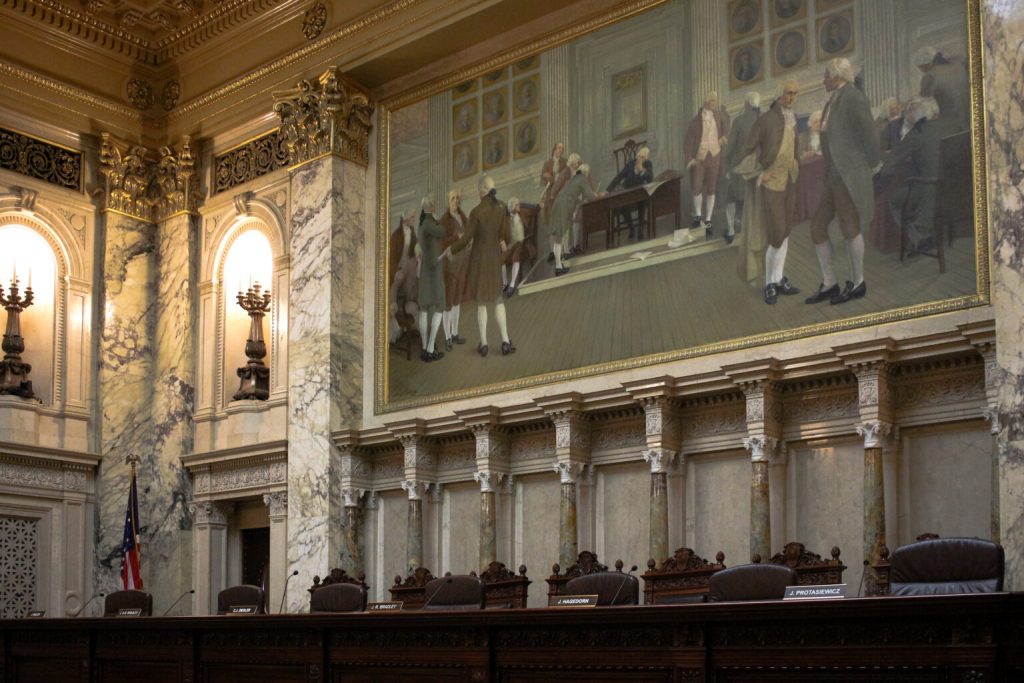State High Court Issues Partial Stay on Racine Absentee Voting Case
Must voting sites be in wards with similar voting patterns to ward with local clerk’s office?
The Wisconsin Supreme Court on Tuesday issued an order granting a partial stay in a case over the legality of Racine using mobile voting vans as in-person absentee voting locations during the 2022 August primary election.
A Racine County man brought the lawsuit, with the help of conservative law firm, the Wisconsin Institute for Law & Liberty, last year, challenging the city’s use of the van and alleging that the van visited more Democratic parts of the city. In January, a Racine County judge agreed, ruling that state law only allows municipal clerks to set up alternate early voting sites at physical structures.
The judge, Eugene Gasiorkiewicz, denied a motion for a stay of his decision pending an appeal. Last month, the state Supreme Court voted to accept an appeal of the case, bypassing the appellate court.
On Tuesday, in a mixed decision with multiple partial concurrences, the Court ruled that it would keep Gasiorkiewicz’s decision about mobile voting vans in place. However the Court did grant a stay on a part of the circuit court decision about the designation of absentee ballot sites.
The majority decision states that Gasiorkiewicz’s decision could be read to declare that municipalities can only set up in-person voting sites in wards that have voting patterns that exactly match the ward in which the clerk’s office is in.
“This view could have dramatic effects across the state as few municipalities, especially large cities, possess multiple wards with political demographics that match those of the ward in which the clerk’s office is located,” the decision states.
Justices Rebecca Grassl Bradley and Brian Hagedorn dissented in part of the decision because it issued a stay against Gasiorkiewicz’s reasoning and not the actual order he made. Bradley, as she has frequently done since conservatives on the Court lost their majority last August, accused the majority of making decisions to benefit the Democratic party.
“In its ongoing effort to resolve cases in a manner benefitting its preferred political party, the majority enters a bewildering order heretofore unheard of in the legal realm,” Bradley writes. “While the majority (correctly) denies the motion to stay the circuit court’s order, the majority ‘stays’ a portion of the circuit court’s legal analysis. This is not a ‘thing’ under the law.”
Wisconsin Supreme Court issues partial stay in case over Racine in-person absentee voting was originally published by Wisconsin Examiner.






















